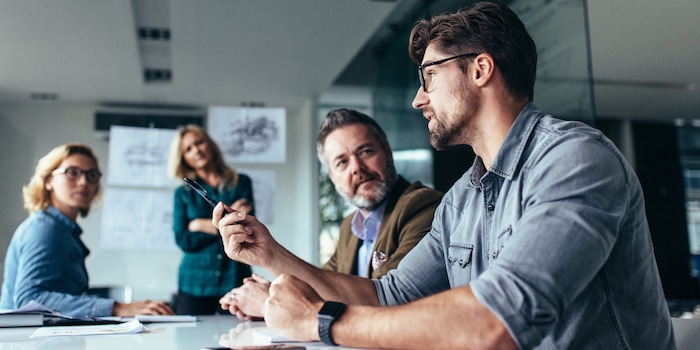
Why it is so hard to learn from your own mistakes
One learns from one's mistakes? That's especially true when it comes to other people's mistakes. One's own mistakes, on the other hand, are often ignored. Why?
You learn less from your own mistake than from a success. Only when it comes to other people's victories and defeats do you benefit equally from both. This phenomenon is described by psychologists Lauren Eskreis-Winkler from Northwestern University and Ayelet Fishbach from the University of Chicago in the "Perspectives on Psychological Science" . Already in 2019, they had shown in a series of studies involving more than 1600 subjects that negative feedback impedes learning - even when a reward beckons. The test subjects were always asked to choose between two alternative answers to a question. Afterwards, they were randomly told either that they were right or that they were wrong. In both cases, they knew which answer was correct. Then another test followed with the same content, but formulated in reverse. For example, the question "Which of these two ancient characters shows an animal?" was "Which of these two ancient characters does not show an animal?" in the second test. Result: After a success feedback, the test subjects knew on average 80 percent of the correct answer to the same question in the second round. After a failure feedback, they only came to around 60 percent - they had learned less from it. A similar effect was also seen with questions about pictures of people ("Are these two people a couple?") as well as professionally relevant questions.
In addition, they remembered the same question in the second round.
Furthermore, participants remembered the two answer alternatives less after their failures (59 percent) than when they received no feedback at all (94 percent). But if they did not answer the questions themselves in the first round, but were presented with the correct and incorrect answers by other people, they drew as much information from their mistakes as from their successes. As soon as it was not about themselves, an error was apparently no longer an obstacle to learning.
A mistake threatens the ego
Now the psychologists analysed the causes. Their conclusion: learning from one's own mistakes is exhausting, emotionally and cognitively. On the one hand, failure threatens the ego, and to protect it, attention is diverted away from it. For another, people prefer to process information that is consistent with their beliefs and expectations and ignore those that contradict them - a common judgment error known as confirmation bias. What's more, the information contained in the failure is not always obvious. You have to think around corners and infer what is right from what is wrong.
But in doing so, you get in your own way. Those who are able to learn from failure increase their chances of future success, write Eskreis-Winkler and Fishbach. They recommend leaving the ego out of it: by learning from the mistakes of others, engaging in constructive self-talk or strengthening one's own self-esteem in the long run so that the ego can deal calmly with failure.
Another strategy would be a different failure culture: to realise that failure is human and every failure is another opportunity to learn something - and to fail better and better. According to the psychologists, this is a skill that can be learned and practised just like other things.
Spectrum of Science
We are partners with Spektrum der Wissenschaft and want to make sound information more accessible to you. Follow Spektrum der Wissenschaft if you like the articles .
Originalartikel auf Spektrum.de
Titelbild: Shutterstock
Experts from science and research report on the latest findings in their fields – competent, authentic and comprehensible.
From the latest iPhone to the return of 80s fashion. The editorial team will help you make sense of it all.
Show all